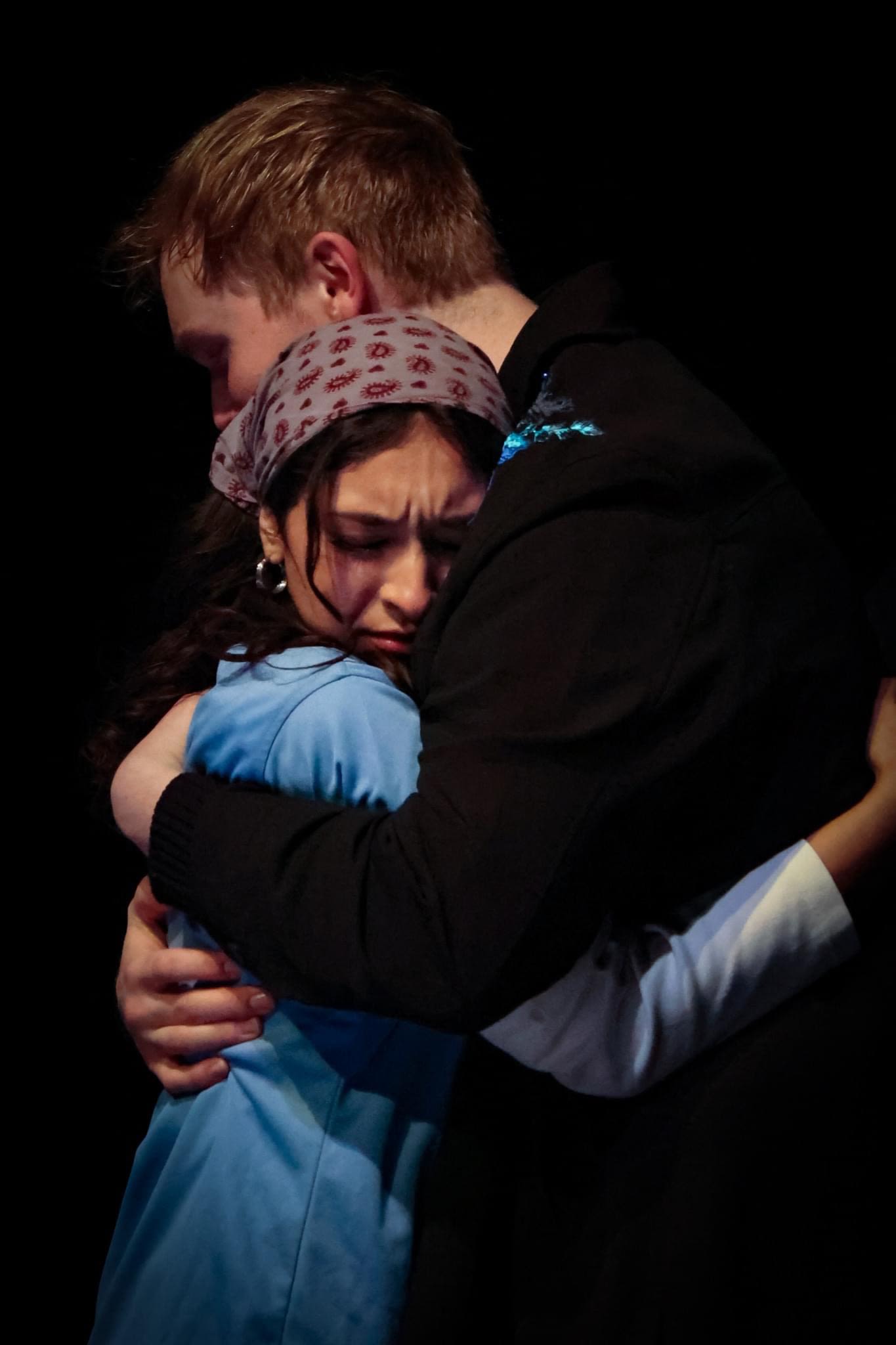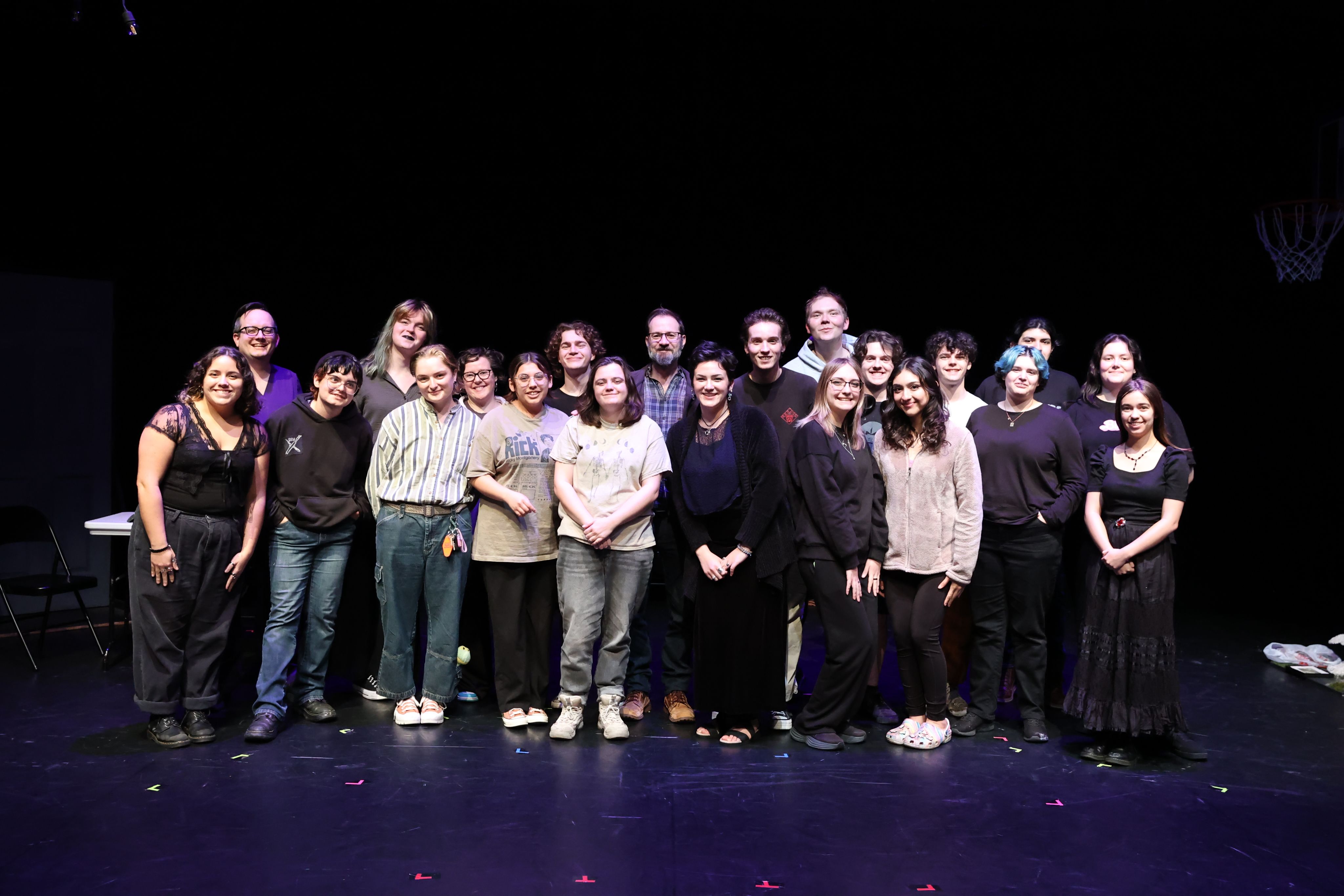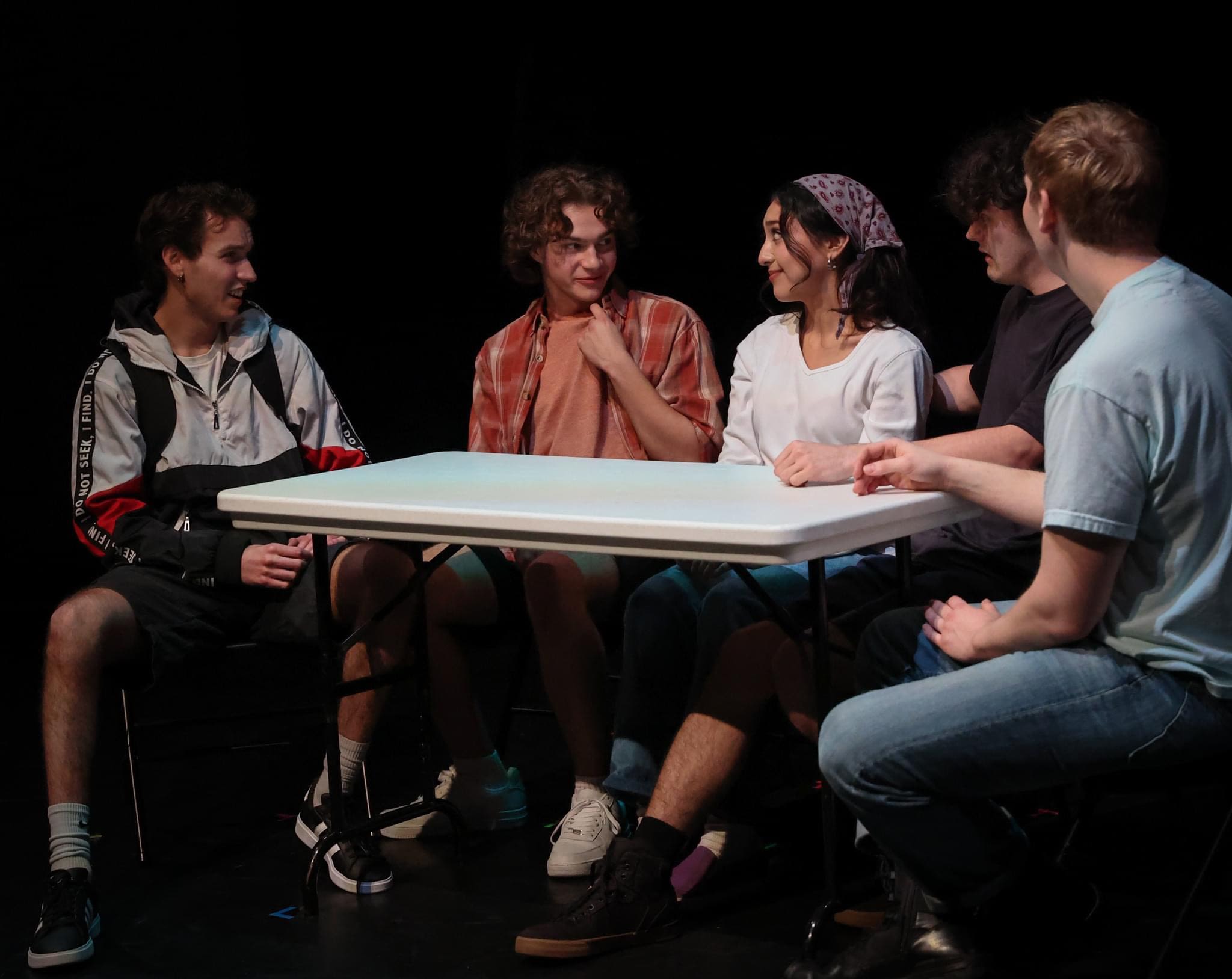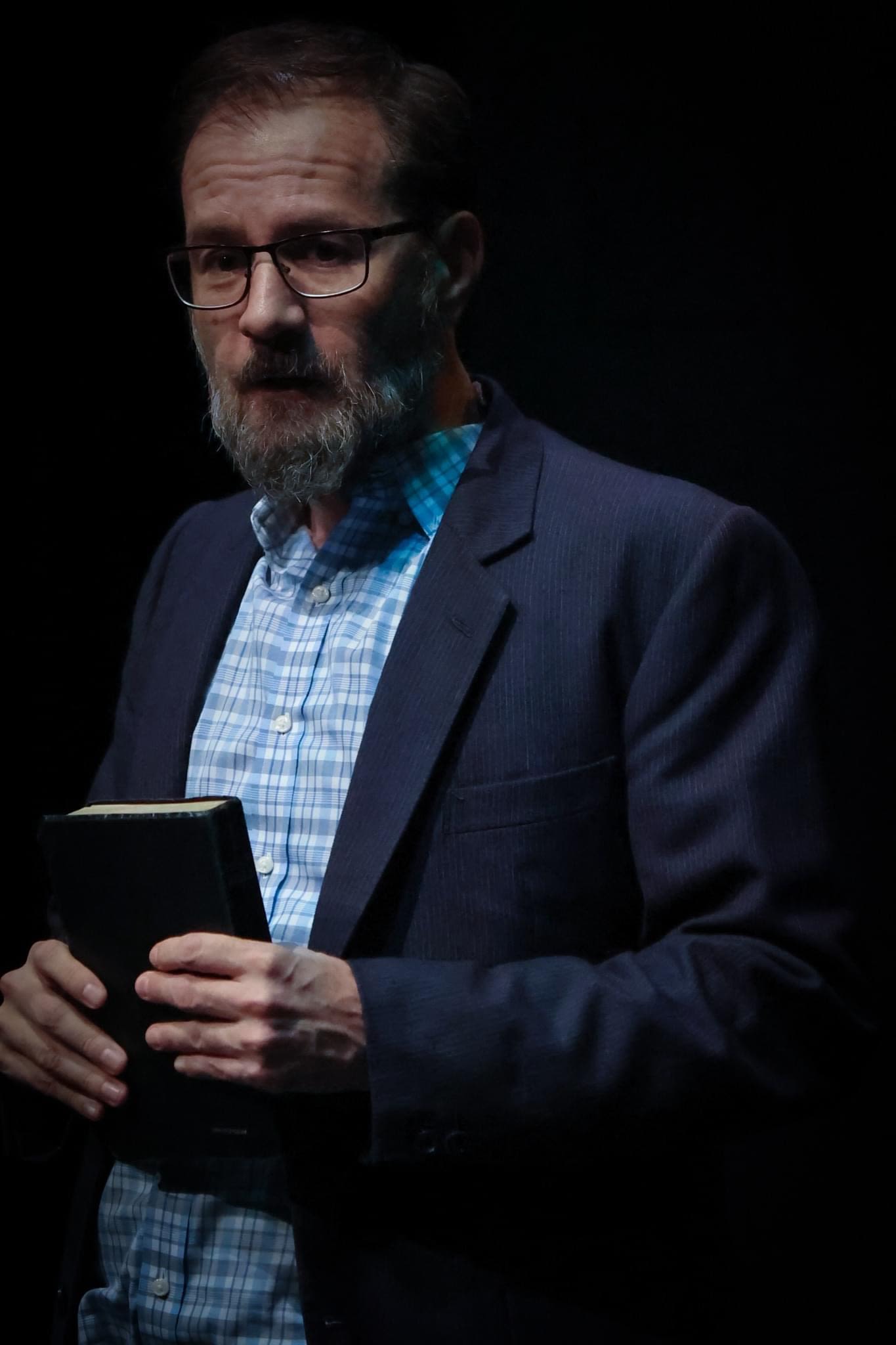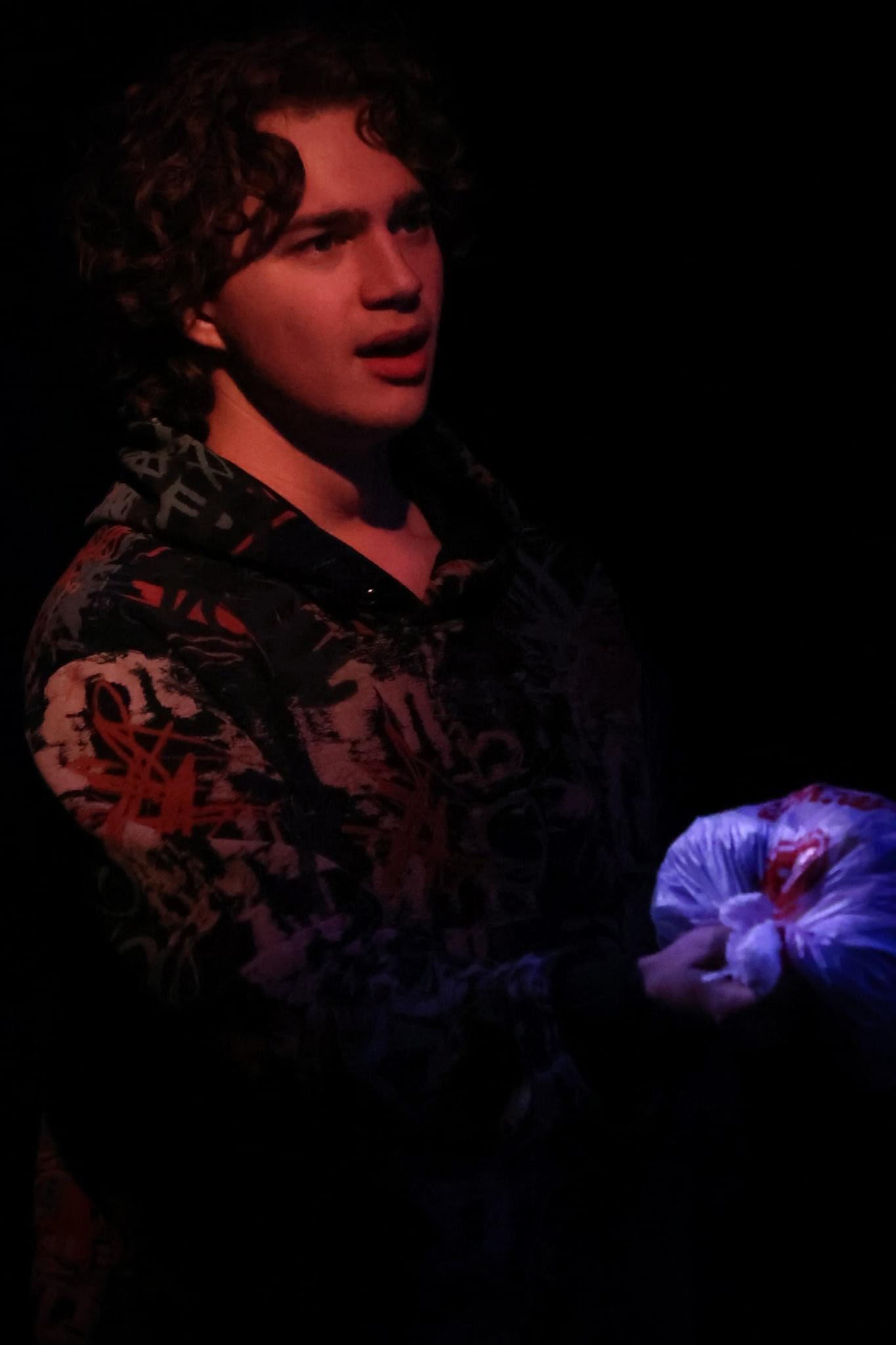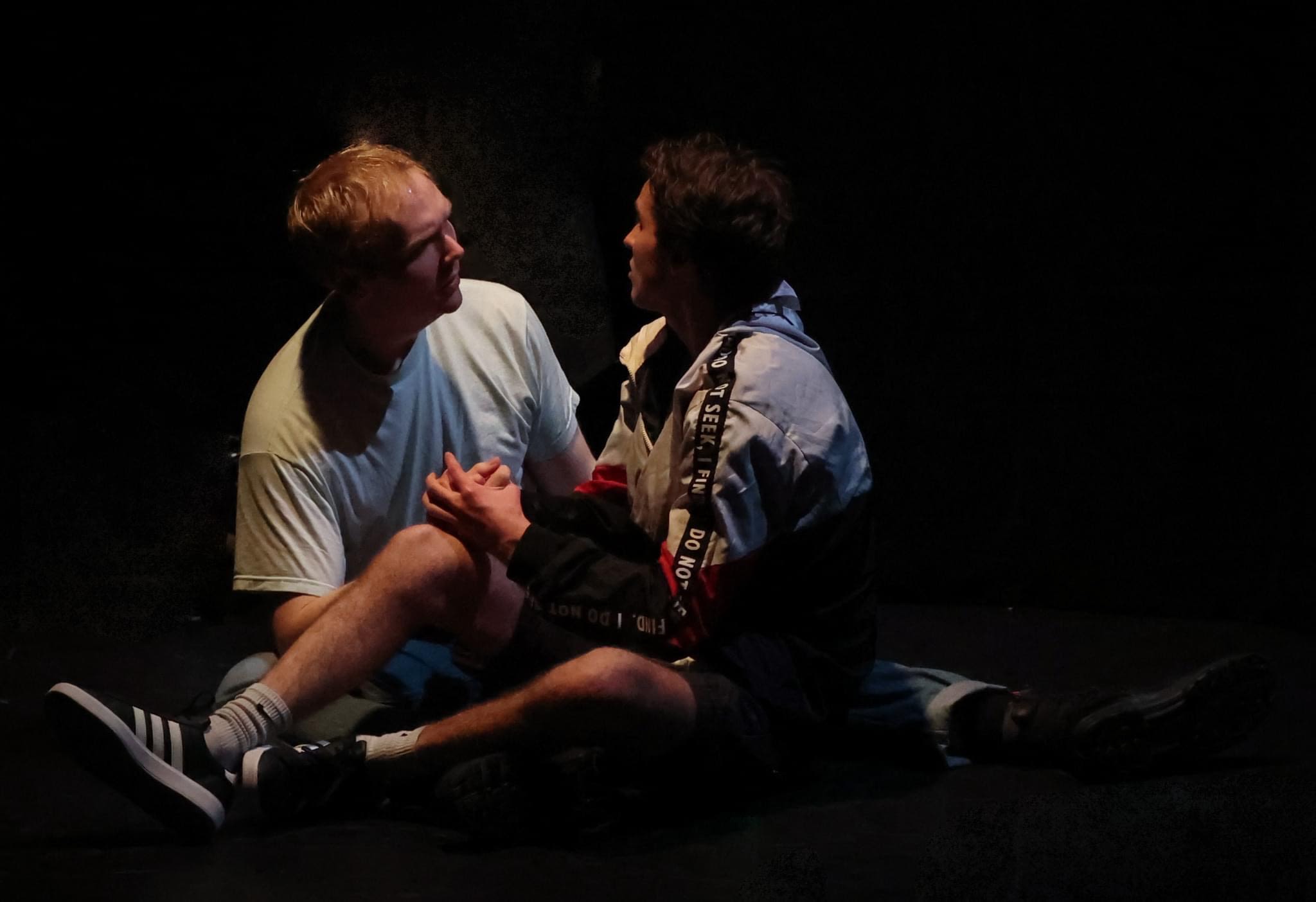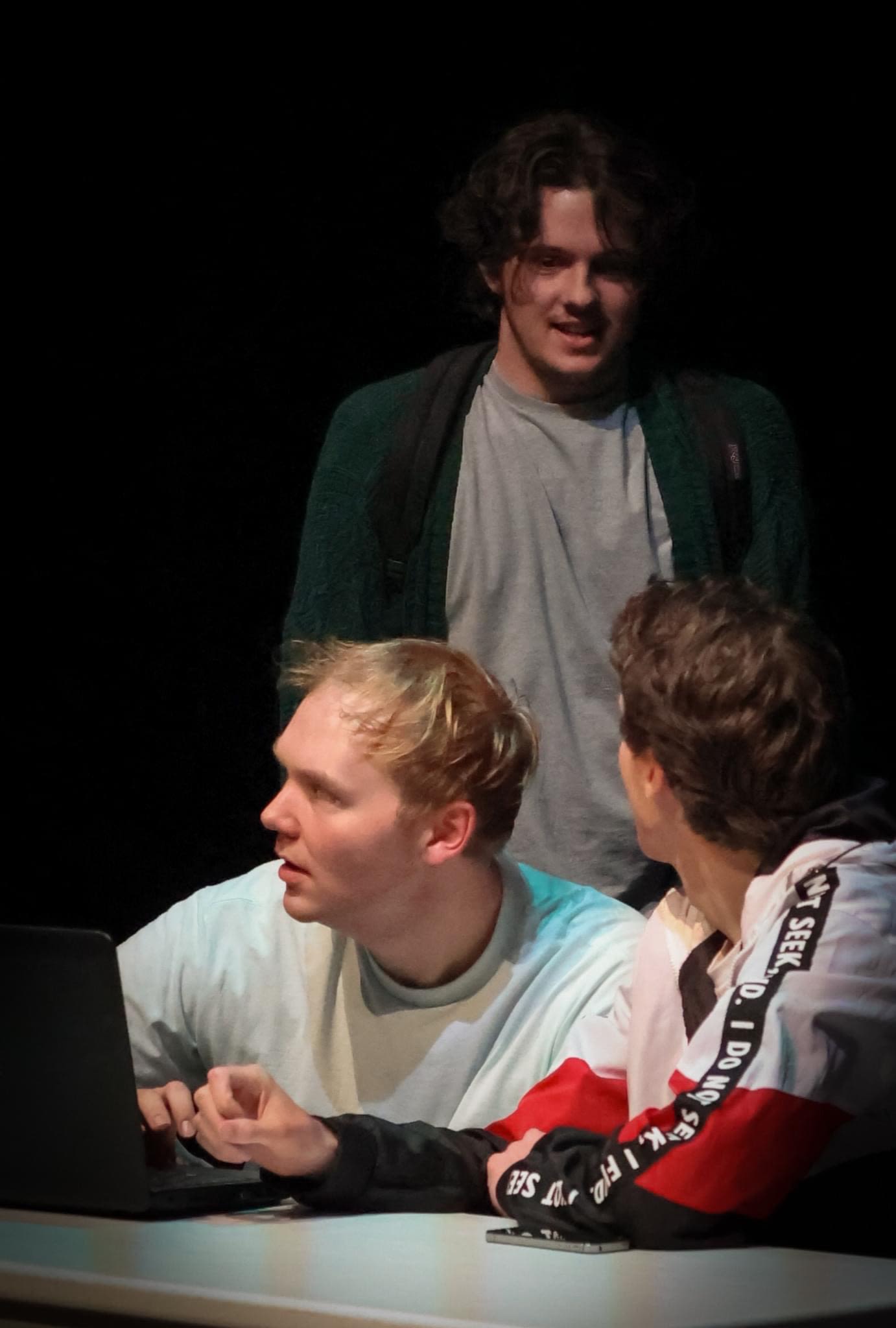EVERYTHING RISES: SAGE MITCHELL’S JOURNEY TO THE KENNEDY CENTER STAGE
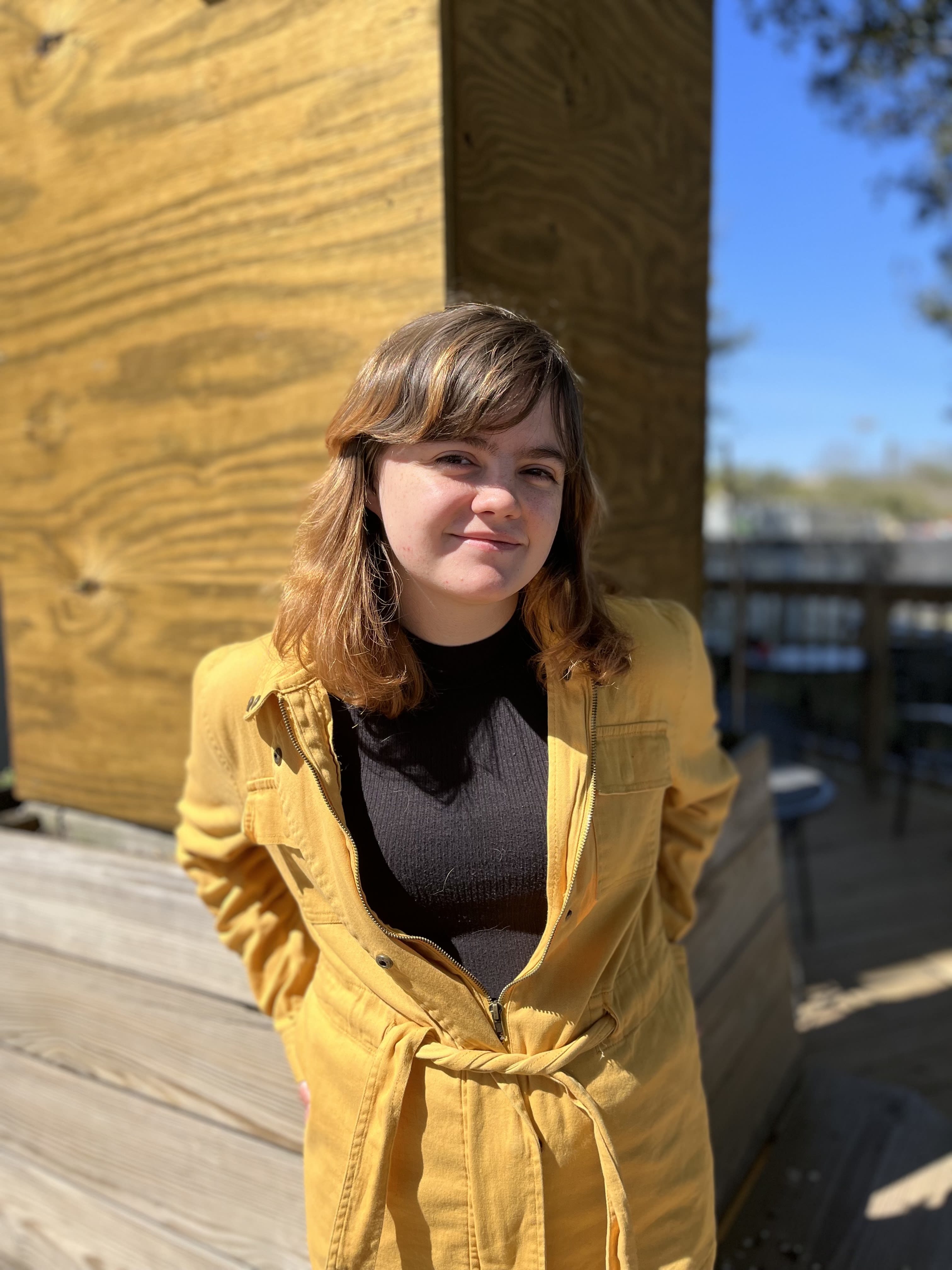
The University of Houston’s Sage Mitchell is making waves with “Everything Rises,” an original play selected for the Kennedy Center American College Theatre Festival (KCACTF). The piece, rooted in deeply personal themes, represents a poignant exploration of love, community, and resilience amidst adversity.
“Everything Rises” will compete at the Region 6 festival—encompassing Texas, Louisiana, Arkansas, Oklahoma, and New Mexico—where Mitchell and their team hope to advance to the National Festival in Washington, D.C., this April.
In this Q&A, Mitchell reflects on the inspiration behind “Everything Rises,” the challenges of the creative process, and their journey as a playwright.
What inspired you to write “Everything Rises”? Are there any personal experiences or influences behind the story?
“I started writing ‘Everything Rises’ in September 2023 during a period of wrestling with grief. I’ve lost quite a few important figures in my life over the years, from death and other circumstances. Because I often experience memory/emotions as such, the play is written non-linearly between two different years across Elliot’s life, the central character of the play.”
“I wanted to write a work of queer theatre set in Texas and about the queer youth here. I’m from a small town outside of Waco, Texas. Waco is pretty conservative and the moral code is shaped in large part by the Baptist church. I was the one of the only 'out' queer people in my immediate community and one of the only queer kids in my high school. That experience definitely formed who I am today and my sensibilities as a theatre maker. Especially right now, when our political leaders in the state are aggressively trying to snuff us out, I wanted to represent our experiences and assert that queer youth in the South deserve space and shouldn’t be left behind.”
What was the creative process like for developing the play? Were there any challenges you faced while writing or refining it?
“I don’t know if I had a process, really. Every play I’ve written requires different things from me. Some work feels like it’s flowing through me, as if someone is transmitting things to me and I’m just putting it down on paper. That’s what it felt like writing ‘Everything Rises’ for the first couple of months; I think I spent six hours a day writing for two months until the first draft was completed. This is definitely not the case with everything that I write, ‘Everything Rises’ is special. It was coming from something very present and real within me at that moment.”
“After the initial draft, rewriting was extremely difficult. I spent weeks drafting out the timeline of events in order, then shuffling the scenes around, planting different objects, words and references that would help the audience plant themselves in time without me having to say it or give away the answers in the play. Although it was stressful, it was a labor of love, and I was very happy when it finally clicked.”
What themes does the play explore, and what message do you hope resonates with the audience? How do you want audiences to feel or think after seeing “Everything Rises”?
“‘Everything Rises’ is, in many ways, a letter of love to the queer youth of Texas. The act of hate and violence in the play is a backdrop; the main action of this play is love. This act is community. And being in community with each other, especially queer community, is a radical act. In the shadow of this violence, to hold on tighter to each other, to be louder and larger with our love, is a form of protest guaranteed to make change happen. In this political climate I feel its especially important to remember our history; they cannot snuff our light, they have never been able to. We exist; we always have and we always will. My vow as an artist is to continue taking care of the kids who no one else is looking after. If they can see themselves in this work and know that they’ll be okay, I know this play has done its job. My only hope for this play is that everyone who encounters it will walk away seeing the people around them. Really seeing. And in the midst of that seeing, I hope we will learn to lead with love.”
How did you feel when you found out your play was selected for the KCACTF? What does this recognition mean to you personally and as a playwright?
"I’ve submitted four plays to KCACTF, one for every year I’ve been at the University of Houston, and I have never received any response. I didn’t expect this year to be any different, knowing how competitive this festival is. I was very shocked and excited to tell my mentors, Greg Romero and Lisa D’Amour, about this achievement. I think it will not only be a crucial professional and creative development opportunity for me, but a huge benefit to our strong Playwriting/Dramaturgy program here at UH. I’m looking forward to starting a relationship between our program and KCACTF and sharing what I learn with my peers so that they’ll feel prepared when they receive an opportunity like this!"
How are you and/or your team preparing for the Region 6 festival? Are there any changes or enhancements you’re making to the production?
"My team and I are very excited to be bringing the most recent draft of the play with us to Abilene. I have been working on rewriting the play based on what I learned during the world premiere at UH. I’m looking forward to the opportunity to hear actors read this new draft so that I can take that knowledge into the next stage of rewrites!"
What would it mean to you if the play advanced to the National Festival at the Kennedy Center? What are you most excited about for the Region 6 festival?
"Advancing to the National Festival with ‘Everything Rises’ would be an absolute honor. To represent not only my UH community, but the queer community here with such an important and special story on a national level is honestly more than I ever expected. This achievement not only speaks to my work on this play, but the support and dedication for new work at the University of Houston School of Theatre and Dance. There are many opportunities for playwrights as part of National Playwriting Program, including meetings with Dramatists Guild representatives, connecting with the top Playwriting MFA programs in the country, as well as fully supported reading of the play at the Kennedy Center in D.C and the chance to win a monetary prize and publishing opportunity from Samuel French. I’m really looking forward to connecting with fellow playwrights at the regional level, attending workshops and performances of new work, and developing my play with the director (Andrew Roblyer) and three actors (Fabian Cortina, Cameron Williams, Greg Romero) from the original company."
What sparked your interest in playwriting, and how has your journey evolved? Are there any mentors, peers, or experiences that have significantly influenced your development as a writer?
"While I’ve always been interested in writing short stories and screenplays, it wasn’t until I heard about UH’s Playwriting/Dramaturgy program that I considered being a playwright myself. I give credit to my high school theatre and choir directors for always supporting my creative pursuits, especially my acting director, Glenn Price. I am always humbled by the support of my peers and professors from the University of Houston, including Greg Romero, Lisa D’Amour, and Dr. Elizabeth Coen. I am especially indebted to the intimacy and mental health coordinator (Ash Love) and dramaturgs (Sumaya Zeidat, Rachel Coleman) from the UH production, for supporting everyone in the development process, including me. I’m lucky to have the encouragement from this community to be a brave and uninhibited artist."
Do you have plans for “Everything Rises” beyond the KCACTF, or are you working on any other projects? What’s next for you creatively?
"I’ve always hoped and anticipated that ‘Everything Rises’ would have a long life beyond its UH premiere. Being invited to KCACTF is hopefully a first step towards this! I’m looking forward to continued rewrites and future productions of the play, as I feel there’s still a lot for me to learn from it as an early-career playwright. In the meantime, I am working on a few other projects, including a new full length play and working with middle/high school theatre directors to write a play specifically for UIL One Act Play. I’m also working with a friend to start up a Houston playwright’s group at a local pub called Leon’s Lounge. I’m lucky to be very creatively enriched and supported by the University and by the Houston theatre community."
Are there any behind-the-scenes moments or stories from the play’s development that stand out to you?
"I will never forget the first table read for the ‘Everything Rises’ world premiere; everyone was so excited, present, and so supportive of the play, of me, and of each other. The rehearsal room for this show was the most pleasant experience I’ve had in the theatre, and much of that is owed to the people in the room who cultivated that space. Especially given the content of the play, I feel so grateful and humbled by everyone’s care and attention throughout the development of the play."
What advice would you give to other students or emerging playwrights hoping to achieve similar success?
"In terms of advice starting a new play (or writing anything in general), these are some things I like to keep in mind:
1) It does not have to be 'good' right away. In fact, if you’re doing it right, it shouldn’t be good. Let yourself do it badly. After all, you can’t edit a blank page.
2) Write as much as you can, as often as you can. It’s important to carve out time for writing, ideally every day. Don’t wait until you’re “in the mood” to write. Oftentimes my best work comes when I’m not expecting it.
3) Let others read your work (specifically people you trust). I know, it’s scary. But the best advice I was ever given about ‘Everything Rises’ when I was stressing over it being 'good' was this: A play isn’t a play when you’re the only one working on it. The thing that makes theatre special and exciting is the fact that it's collaborative. You need other people to make your play happen. So invite other people in. It will make you feel better and motivate you to keep going."

